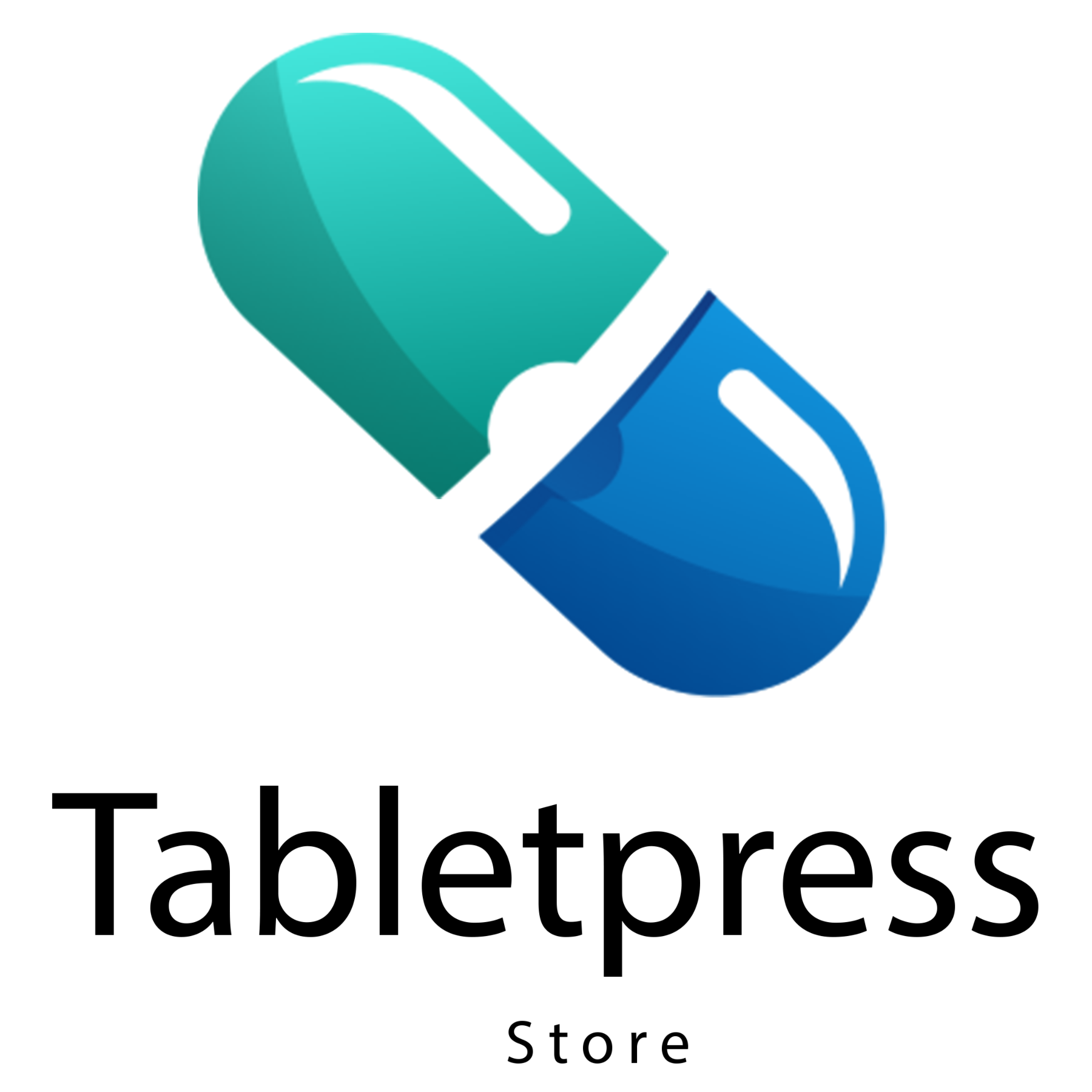Comparison between eccentric and rotary presses: The right choice for tablet production
Die Herstellung von Tabletten ist ein komplexer Prozess, bei dem die Wahl der richtigen Pressmaschine entscheidend ist. Ob in industriellen...
WORLDWIDE SHIPPING - Order now

In the ever-evolving pharmaceutical landscape, tablet machines, particularly tablet presses and pill presses, continue to play a crucial role. Their importance in the pharmaceutical market is underpinned by several factors, including manufacturing efficiency, dosing precision and cost-effectiveness. Despite advances in other delivery systems, tablet presses remain an essential part of pharmaceutical production due to their versatility and reliability.
The heart of pharmaceutical tablet production is the tablet press machine. This machine, also known as a tablet press, is designed to press powder into tablets of a uniform size, shape and dosage. The process comprises several stages: Mixing the powder, granulating, pressing and coating, all of which are supported by the tablet press.
Tablet presses are mainly divided into single-stamp and rotary tablet presses. Single-stamp presses, also known as eccentric presses, are generally used for the production of smaller quantities or for research and development. Rotary tablet presses, on the other hand, are used for the production of large quantities, as they can produce a large number of tablets quickly and efficiently.
The main reason for the continued importance of tablet presses in the pharmaceutical market is their efficiency and precision. Modern tablet presses are designed to process large batches of tablets while ensuring high consistency and minimal waste. This efficiency is crucial for pharmaceutical companies to meet the high demand for medicines while maintaining strict quality standards.
Tablet presses are equipped with advanced technology to ensure precise dosing. They are designed to compress powder into tablets with exact weight and uniformity, which is essential for therapeutic efficacy and patient safety. With features such as adjustable compression force, tablet thickness and automatic monitoring systems, modern tablet presses offer unrivaled precision.
Tablet Press also offer considerable cost advantages. The production of tablets with a tablet press is generally more cost-effective compared to other dosage forms such as capsules or injectables. The cost-effectiveness of tablet production results from the simple design of tablet presses, which require less maintenance and can produce large quantities with fewer resources.
Außerdem sind Tablettenpressen sehr flexibel. Sie können eine breite Palette von Formulierungen verarbeiten, von einfachen Analgetika bis hin zu komplexen Tabletten mit kontrollierter Freisetzung. Dank dieser Vielseitigkeit können Pharmaunternehmen verschiedene Arten von Tabletten, einschließlich Kautabletten, Brausetabletten und Tabletten mit verlängerter Wirkstofffreisetzung, mit einer einzigen Anlage herstellen.
In the pharmaceutical industry, quality control is of paramount importance. Tablet presses are designed to meet strict regulatory standards and ensure that every tablet produced is of high quality and meets the required specifications. Modern tablet presses are equipped with features such as in-line inspection systems that monitor tablet hardness, weight and appearance in real time, ensuring compliance with industry standards.
In addition, tablet presses are designed to be easy to clean and maintain, which is crucial for avoiding cross-contamination and ensuring product integrity. The ability to switch between different tablet formulations quickly and without long downtimes underlines the practical benefits of using tablet presses in pharmaceutical production.
Despite the emergence of alternative drug delivery systems, tablet presses remain adapted to modern pharmaceutical requirements. The development of high-speed rotary tablet presses, which integrate advanced technology and automation, is an example of how Tablet Press have evolved to meet modern requirements. These machines are capable of processing complex formulations and producing tablets at an unprecedented speed, enabling pharmaceutical companies to keep pace with growing market demand and new healthcare trends.
In addition, the integration of digital technology into tablet presses has improved their capabilities. Modern tablet presses are equipped with digital interfaces that enable precise control of the manufacturing process, real-time data collection and remote monitoring. This technological advancement ensures that tablet presses remain relevant in a market that increasingly emphasizes innovation and efficiency.
Tablet machines, including tablet presses and pill presses, remain a cornerstone of the pharmaceutical industry due to their efficiency, precision and adaptability. As the pharmaceutical market continues to evolve, the ability of tablet machines to produce high-quality and cost-effective tablets in large quantities is a guarantee of their continued importance. The continued importance of these machines underscores their role in meeting global healthcare needs and advancing pharmaceutical manufacturing technologies.
In summary, tablet presses and pill presses are more than just tools of the trade; they are vital parts of a dynamic industry that is committed to providing patients around the world with safe and effective medicines.
1. Was ist eine Tablettenmaschine und wofür wird sie eingesetzt?
Eine Tablettenmaschine (auch Tablettenpresse genannt) dient zur Herstellung von festen Dosierungen von Medikamenten, Nahrungsergänzungsmitteln oder Kräuterpräparaten in Tablettenform. Sie wird in Apotheken, Laboren und der Pharmaindustrie eingesetzt.
2. Warum sind Tablettenpressen auf dem Pharmamarkt nach wie vor wichtig?
Tablettenpressen ermöglichen präzise Dosierung, hohe Produktionsgeschwindigkeit und Konsistenz in der Tablettenqualität. Gerade für Massenproduktion und standardisierte Medikamente sind sie unverzichtbar.
3. Kann man eine Tablettenpresse auch für Zuhause nutzen?
Ja, es gibt kompakte Tablettenpressen für den Heimgebrauch, z. B. zur Herstellung eigener Nahrungsergänzungsmittel. Diese Geräte sind kleiner, aber bieten grundlegende Funktionen für Tablettenpressen.
4. Welche Arten von Tablettenmaschinen gibt es?
Es gibt manuelle, halbautomatische und vollautomatische Tablettenpressen. Sie unterscheiden sich in Kapazität, Geschwindigkeit und Präzision und werden je nach Bedarf in Pharmaunternehmen oder Zuhause eingesetzt.
5. Worauf sollte man beim Kauf einer Tablettenpresse achten?
Wichtige Faktoren sind die maximale Produktionskapazität, Materialqualität, Wartungsfreundlichkeit und Sicherheitsfunktionen. Für Zuhause sollte die Bedienung einfach und sicher sein.
6. Wo kann man eine Tablettenpresse kaufen?
Tablettenpressen kann man online oder in Fachgeschäften für Labor- und Pharmatechnik kaufen. Beliebte Suchbegriffe sind „Tablettenpresse kaufen“, „Tablettenmaschine“ oder „Tabletten pressen“.
Die Herstellung von Tabletten ist ein komplexer Prozess, bei dem die Wahl der richtigen Pressmaschine entscheidend ist. Ob in industriellen...
Der Kauf einer Tablettenpresse ist eine strategische Entscheidung für Unternehmen aus der Pharma-, Chemie-, Lebensmittel- oder Nahrungsergänzungsmittelindustrie. Die richtige Maschine...
Der Einsatz einer Tablettenpresse erfordert nicht nur technisches Verständnis, sondern auch sorgfältige Vorbereitung und Aufmerksamkeit. Obwohl diese Maschinen für die...
Die Herstellung von Tabletten ist ein komplexer Prozess, bei dem jede Komponente des Tablettenpressens entscheidend für die Qualität des Endprodukts...
